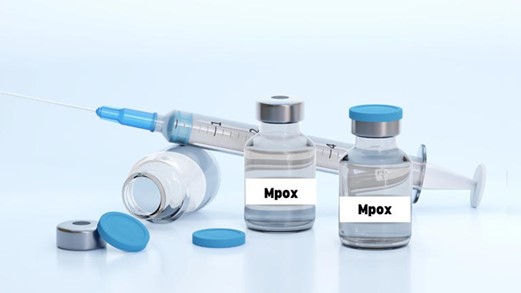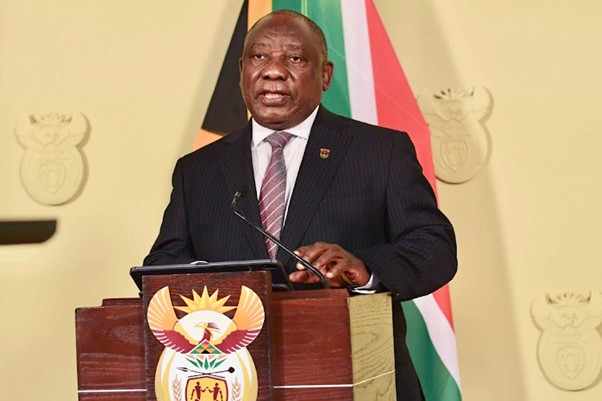In Phoenix, north of Durban, the city’s Metro police conducted an operation to ensure business compliance. Durban metro police spokesperson Colonel Boysie Zungu, said yesterday in a concerted effort to maintain order and safety with in our community, City teams, including the Durban Metro Police and the South African Police Service and other departments. The police services conducted a thorough inspection of business in Ward 51, as part of the ongoing Operation Good Hope.
Zungu said this initiative aims to ensure that local businesses adhere to all the necessary regulations. This contributes to a safer and more compliant environment for all. He said during the operation, the teams visited several establishments to assess their compliance with business regulations. “Shop owners operating without a valid business licence were charged accordingly for failing to produce the required documentation. Additionally, expired goods, which pose significant health risks to consumers, were identified and promptly removed from the shelves to protect the community,” Zungu said. Zungu urged business owners to ensure that they have the proper trading licences in place. He said they should also ensure to regularly check the validity of their stock. “Compliance with these regulations is not only a legal obligation but also a crucial step in fostering a trustworthy and safe business environment in our community,” he said.
The police raids on local business in rural Phoenix will go a long way in curbing the continued sale of expired goods. The health of customers and the overall health of the local public should be the top priority in the conduct of these raids. It will help local businesses have a firm oversight of their goods. The risk of expiry for food goods could be due to excessive inflation. However, engaging in owning a business with out the proper licence is not acceptable. Licences of businesses are needed to protect the profession in question ensure that businesses are regularly inspected by the local authorities. These shop owners are charged with serving the community with selling needed goods whether its groceries, or other necessities such as health products. Tooth paste and tooth brushes being an example. Businesses need to have the trust of the community they serve.
They do this by ensuring the quality of their goods and service remain to standard. However, there is new threat around with the outbreak of monkey pox.
The detection and rapid spread of a new clade of mpox in eastern DRC, its detection in neighbouring countries that had not previously reported mpox, and the potential for further spread within Africa and beyond is very worrying. In addition to other outbreaks of other clades, the Emergency Committee’s advice to me, and that of the Africa Centres for Disease Control and Prevention, which yesterday (Tuesday) declared a public health emergency of regional security, are aligned.” Mpox is a viral illness caused by the monkeypox virus, with two distinct clades: Clade I and Clade II. Common symptoms include a skin rash or mucosal lesions lasting two to four weeks, fever, headache, muscle aches, back pain, low energy and swollen lymph nodes.
The chilling emergence of a new strain of a virus such as monkey pox brings back memories of Covid 19. The threat this deadly virus provokes this time on the skin and in the muscle, tissue will need medical attention for those who exhibit the symptoms. Although this could be equally deadly to covid it doesn’t spread through the air. Rather its main source of contraction is through touch. A clade is a reference to a group of organisms that includes all the descendants both existing and extinct of that ancestor. So Mpox is a descendant of Monkey Pox. This new strain is deadly and could bring death to anyone. The disease is said to be resistant to current vaccines. Those who have the symptoms above should contact their local doctor.
The virus can be transmitted to humans through physical contact with an infectious person, contaminated materials, or infected animals. The Africa CDC said the decision comes after at least 13 African countries, including previously unaffected nations like Burundi, Kenya, Rwanda, and Uganda, had reported mpox outbreaks. These countries have confirmed 2 863 cases and 517 deaths for 2024, primarily in the Democratic Republic of the Congo (DRC), the organisation said. According to the Africa CDC, suspected cases across the continent have surged past 17 000, a significant increase from 7 146 cases in 2022 and 14 957 cases in 2023. The South African National Health Department last month said the disease remained under control locally and confirmed 22 mpox cases including 16 recoveries, three deaths and three active cases.
National Health Department spokesperson, Foster Mohale on Wednesday said South Africa was among participants in an emergency meeting by the WHO, where different countries including South Africa were presenting. “This is a closed meeting for countries to present the state of mpox, to enable the WHO to make (an) informed announcement,” Mohale said.
The danger that this disease can manifest on the skin shows the necessity that washing hands would soap and water will prove to be redundant. The growing threat of this virus in countries that were thought to be immune to it shows that this new strain of Mpox is more deadly than the previous variant of monkeypox. Despite the fact that Mpox originated from Monkeypox which originated from monkeys, but can be more tractable from rodents and squirrels. The symptoms of the pox start with a rash, followed by the formation of boils all over the body and face. The fact that there have been sixteen recoveries shows that there is hope of a cure, and that those who are unaffected should follow the advice of their local or personal doctors.
The outbreak has certainly caused a great deal of concern for the international community and South Africa in particular due to the close proximity of the country to the nations infected. The government from Pretoria to the local authorities must be vigilant considering the spread of Mpoz virus across South Africa. The WHO, the African Union (AU), the Southern African Development Community (SADC) as well as the South African Department of Health should now invest their resources in identifying the virus’ weakness and creating a cure. Only time will tell what impact the virus will have on the immune system.
Article written by:
Yacoob Cassim
Journalist at Radio Al Ansaar






